“We see a need in the community and try to figure out how to fix that need.”

Evana
Enabulele
Life doesn’t stop with the pandemic.
There’s your family, there’s death, there’s your physical and mental health. Other things are happening, like my friend recently passed away from HIV. This time has made me feel so old. It just feels like a long year.

I’ve worked in recreation for one of the largest employers in Seattle (not Amazon). It started to get overwhelming to have this pandemic happen and to act like everything was normal. I started to get nervous about my sick time. I wasn’t able to take mental health days like I used to. It made me stop being myself.
But I have always loved work. I like stability and don’t like change. To change my job where I had been working since I was a teenager – since I was 18 – that has been really hard. I reduced my hours to 20 hours a week. Now I work 20 more hours for Queer The Land.
I’m a non-binary person and Black. People of color and non-binary or trans folks are the most marginalized people, people who are afterthoughts in many places. And that’s whom we serve at Queer The Land. If they are not getting adequate personal protective equipment (PPE) supplies, if they’re not getting the best food or all of these other things, I feel like they should be.
When there’s a need, we mobilize – it's community care. We all care about each other. It changed my life and perspective to give and receive care. That’s why I keep saying that Queer The Land is like a soft pillow.
Rising to the Challenge
The pandemic made a lot of us pivot at Queer The Land. We do a lot of work in housing – giving people housing-specific stipends or emergency housing funds.
When the pandemic hit, we noticed that people needed money for diapers and gas. How could we possibly sit there and say, “Please use the money for housing”? We know many people have unexpected bills and are supporting family. Now, we are like, “We don’t care what you use this money for. Please take the $500.”
With Queer The Land, community care is number one. We see a need in the community, and we just try to figure out how to fix that need.
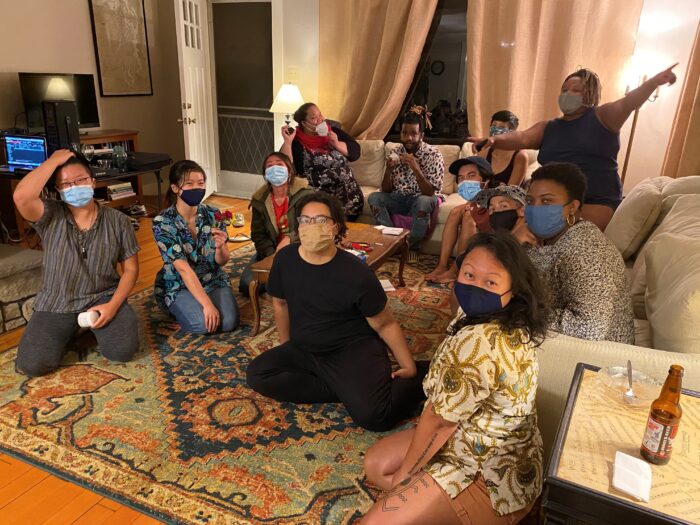
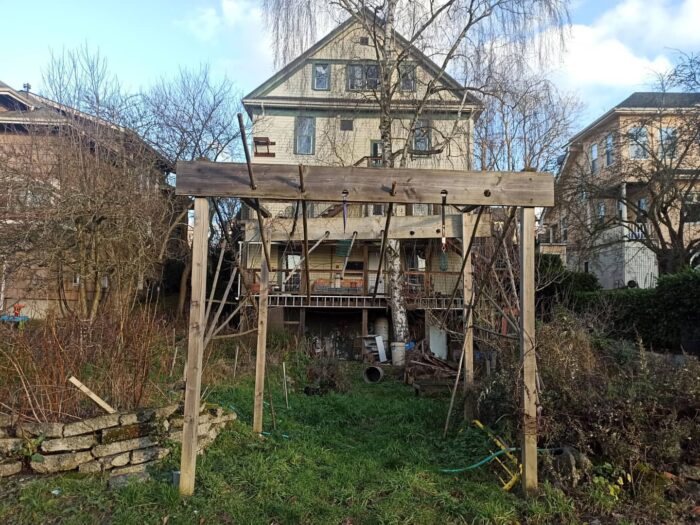
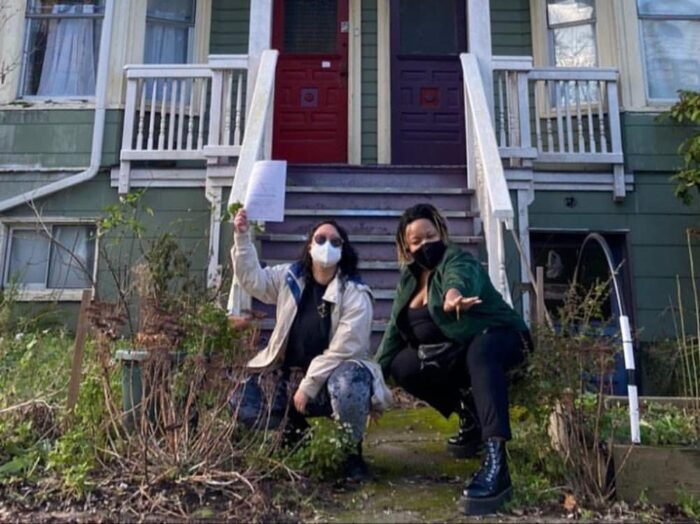
(From left) Twelve people from the Queer the Land community sitting on the floor and on couches at a retreat in September 2020; the Queer The Land house, Kalayo Pestaño, member and co-founder of Queer The Land, with Evana at the Queer The Land house © Queer The Land

Queer The Land has now purchased a house. The house has 12 bedrooms and four levels. It will have two kitchens and a basement. Our focus is on how to build our house, connect with folks who need housing, and make sure that our community has food and resources.
That’s why we started to do a lot of outreach. I started taking every opportunity that came to us. I never said no – like when the City reached out and said they had Safeway vouchers. I was wondering how I was going to get over 100 people to sign up for vouchers in less than a month. In two weeks, 97 people signed up! Over $38,000 each month from September to April – that’s how much you’re giving back to the community.
Now, we do a lot of mutual aid and food security work. We partner with Uprooted, Rising, Trans Women of Color Solidarity Network (TWOSCN), and COVID19 Mutual Aid. It’s also really cool that we get to partner with groups like Sovereign Roots with whom we wrote a United Way grant for a Community Food Fund. We’ll be doing food delivery and we’ll have an apothecary. And all of this came out of the pandemic and with the thought, “How do we feed people and get them fresh food?”
We leaned on our community and realized that everything is interconnected. It made us take a step back and realize that there’s other stuff we can be doing in addition to housing work. It made us stronger.
How do we feed people fresh food?
Groceries
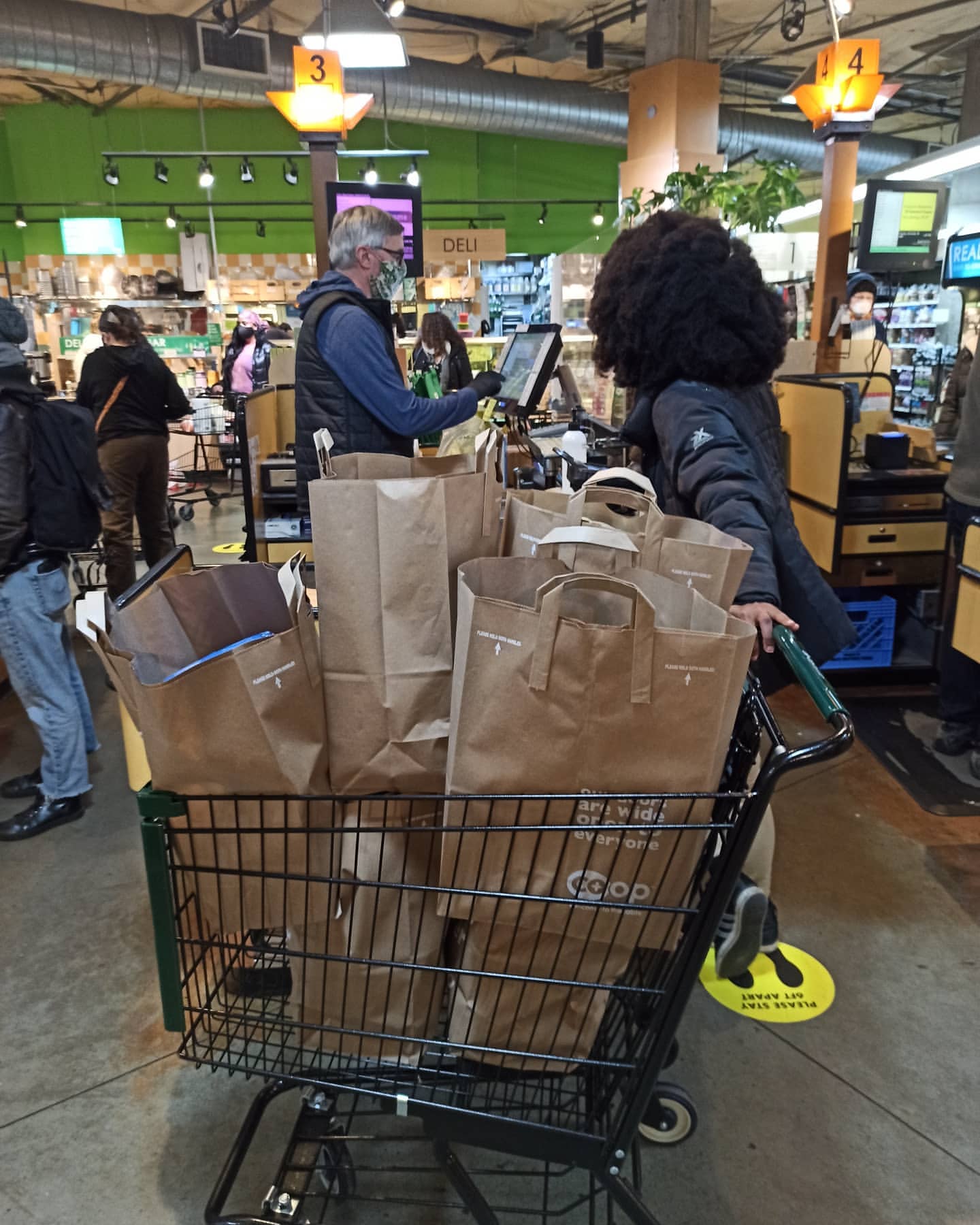
We grocery-shopped for the community.
Six Queer The Land members were employed to act as delivery drivers and shoppers: We operated out of the Central Co-op and averaged around $350 per household. We were able to give back over $11,000 to the community.
Mutual Aid
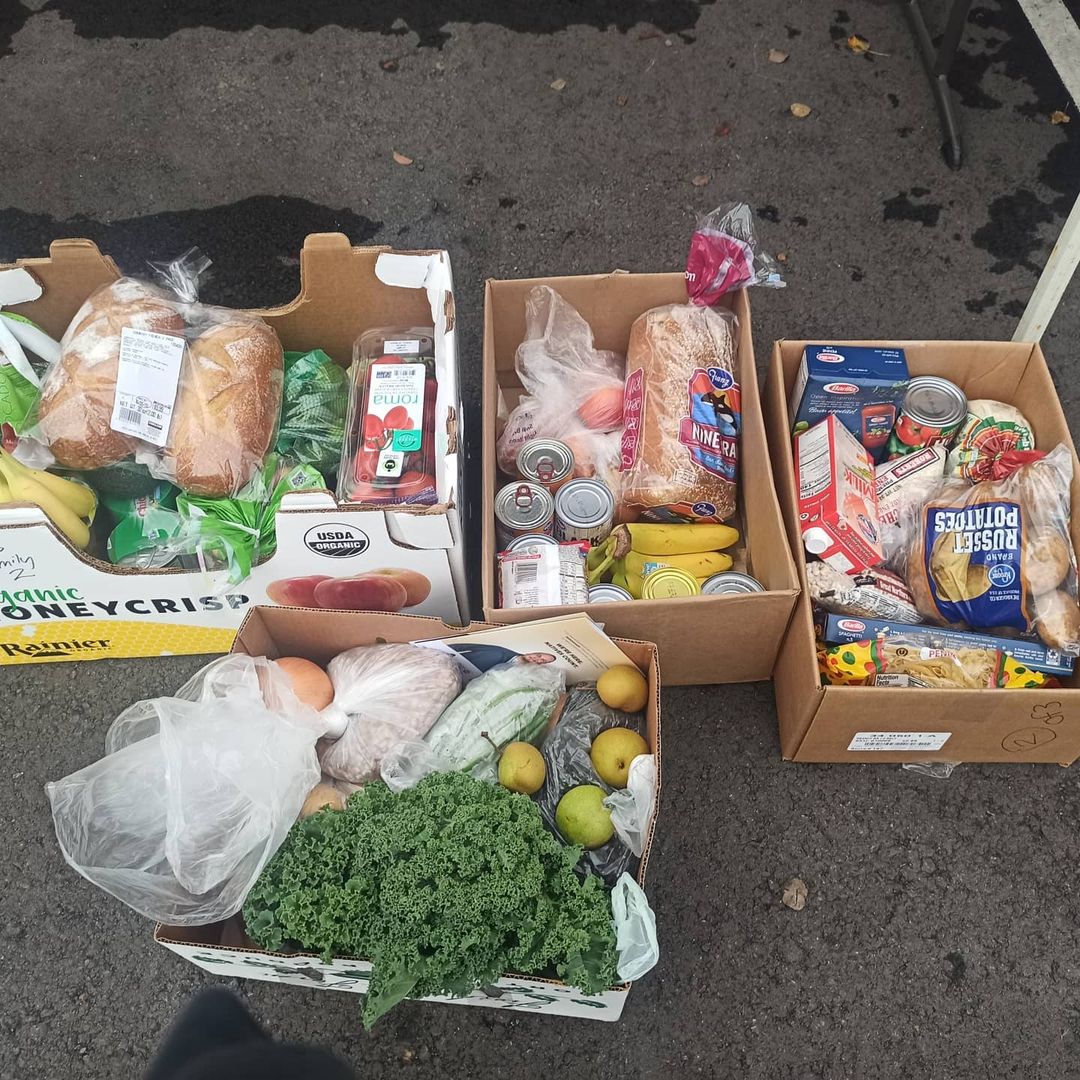
We partnered with Uprooted & Rising, TWOSCN, & COVID19 Mutual Aid
Queer The Land was able to serve more than 200 households by giving over $12,000 in funds to buy fresh produce.
Preparedness
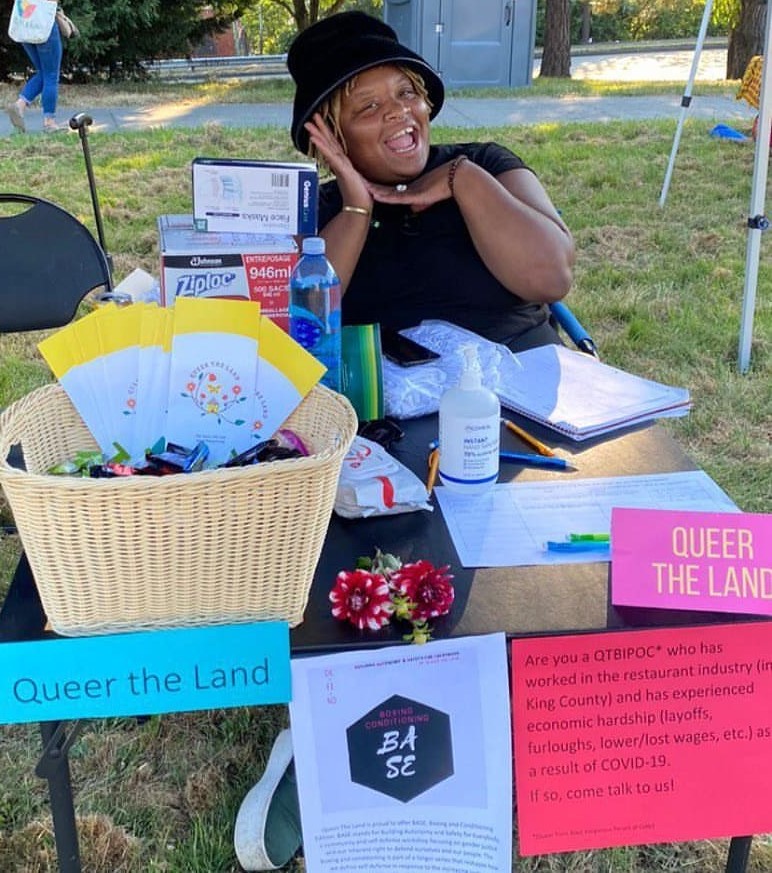
Get ready, stay ready.
Queer
The
Land
hosted
quarterly
gatherings
to
prepare
our
communities
for
natural
and
manmade
disasters
and
create
emergency
kits.
Since
we
were
not
able
to
do
that
during
the
pandemic,
we
partnered
with
King
County
to
deliver
masks
and
hand
sanitizers
to
our
community
members
at
events
that
were
still
taking
place.
Confronting Inequities
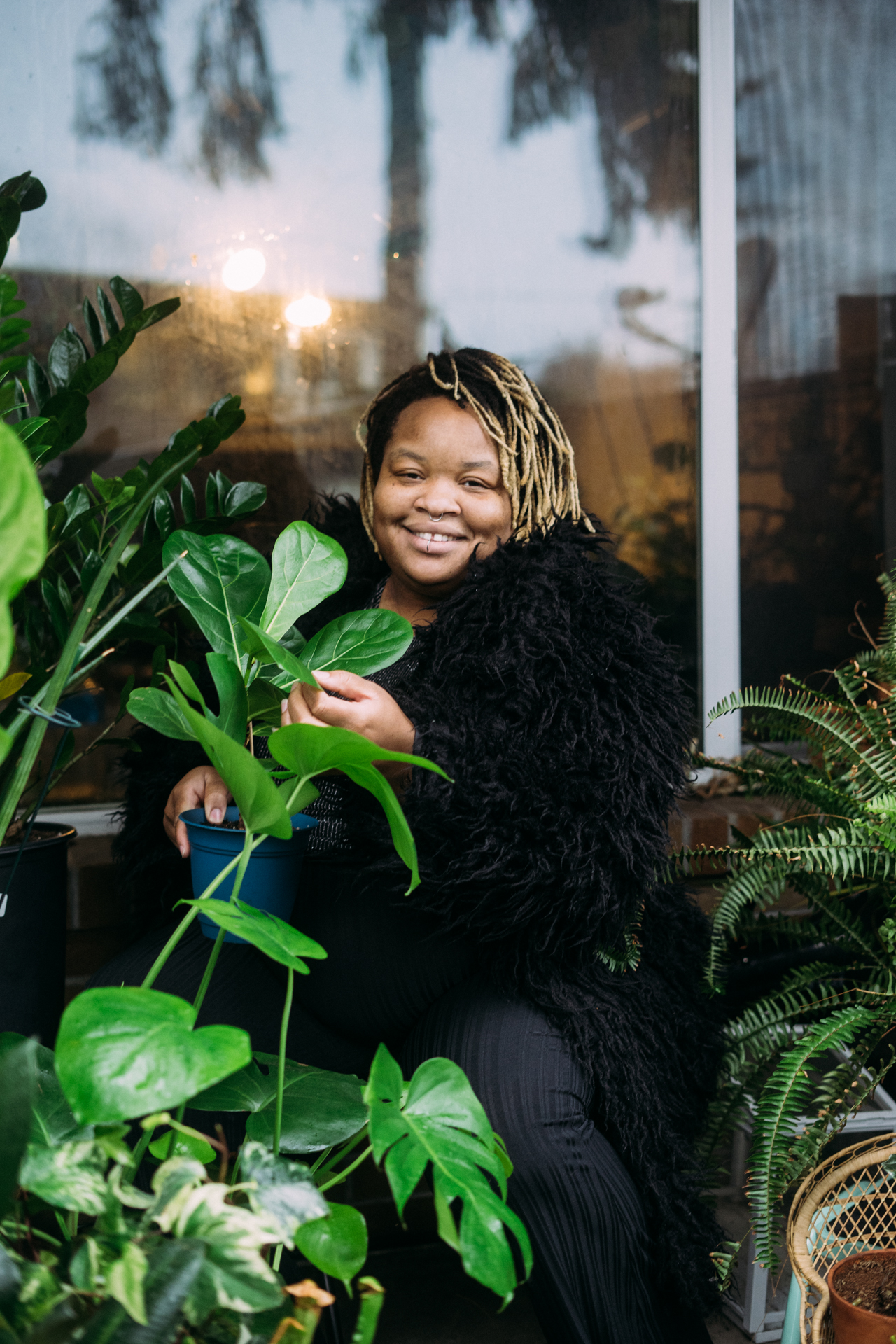
Evana © Gates Foundation/Chloe Collyer
It shouldn’t take a pandemic to care for folks or to notice that you too can lose your job, you too may need resources, or you too may need a scholarship – and that’s not embarrassing.
As queer folks, we are not able to explore so many things because we never get a chance to breathe. But when you have your housing taken care of, you can start to explore other opportunities. This is the first time in a long time – in years – that I have not had to move over and over again. Moving repeatedly is traumatizing. After Queer The Land, I’ve finally been able to see my strawberry plants and lemon balm come back.
I think COVID-19 has really accelerated a lack of access. When my friends and community members say, “Oh my god, I missed out” on vouchers or aid – I feel horrible. Unfortunately, information is not equitably given out either. I hope people leave this period with a better understanding – and by treating people better.
Finding Hope
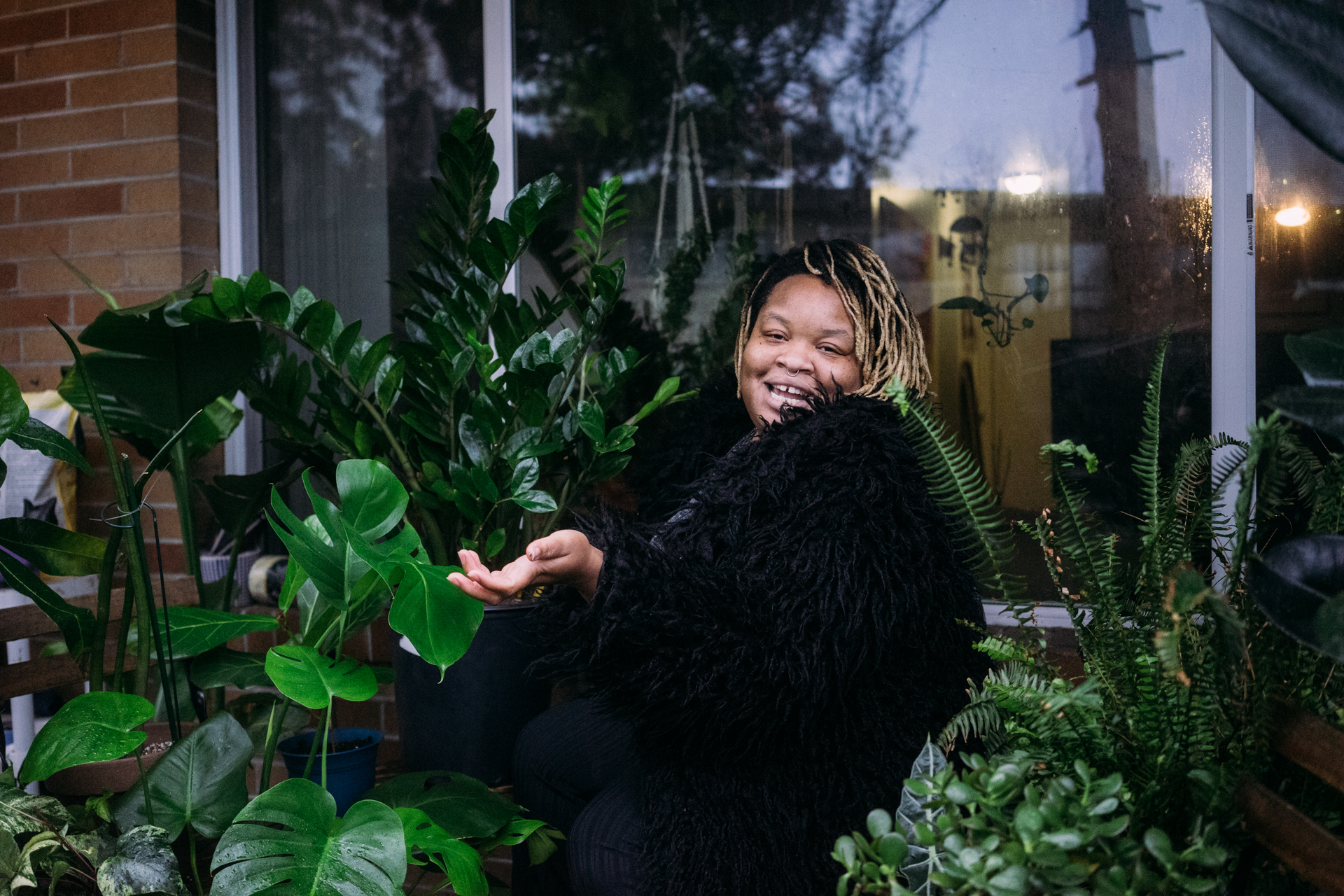
Evana © Gates Foundation/Chloe Collyer
With new members coming into Queer The Land, by meeting them and hearing their stories, it adds more breadth and energy to our work and what we are doing as an organization.
But what continues to give me hope? The youth! Just seeing their tenacity and resilience in the last year and seeing them put out all this work…. The youth give me lots of hope. Another thing that is giving me hope is time – knowing that things get better with time.
I truly believe that if everybody realizes that collective power is real, then we could really do some work. Everyone has to get out of their minds, and if we all were on the same page, then we could all do some real stuff.
– Told to South Seattle Emerald’s Marcus Harrison Green, December 2020
Get Involved
Support Queer The Land – a collaborative project grounded in the self-determination of queer, transgender, and Two-Spirit Black/indigenous/people of color (QT2BIPOC) and their vision to collectively own their land and labor. Read more of their story in the Seattle Times and Forbes.
Connect | Instagram | Facebook | Email
Other community organizations to support can be found to the right: